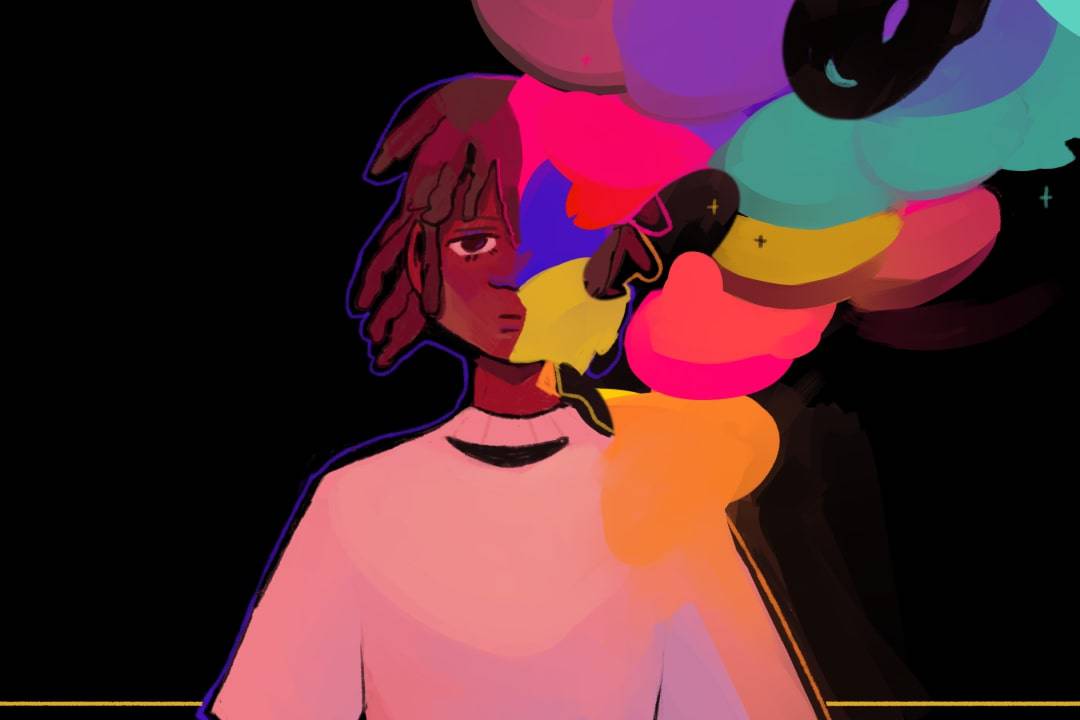One day in March 2016, for a reason that escapes me now, my friend Ali and I split from our friend group to get chai karak. The rest of the group stayed by the two main cars that transported us. They bantered among themselves with sharp Egyptian jokes.
On our way back to our friends, Ali and I encountered a group of Sudanese youth. The sag of their pants, blasting of gangsta rap and abundant exchange of the n-slur dismayed Ali.
“Homa leih mesh 3aysheen 3eeshet ahlohom?” he asked — Arabic for “Why are they not living the life of their parents?” In other words, he was saying, why were they pretending to be someone that they’re not?
I scrunched my lips at the right corner of my mouth; Ali didn’t get it. I tried to explain to him how they were just trying to express themselves and their Blackness in a way that makes them comfortable. He still didn’t understand how tales of the rough realities of Compton had anything to do with Sudanese kids living in the Arabian gulf. We eventually reached our friends, but never reached an understanding.
What does it mean to be Black?
My understanding of my Blackness was conceived through an understanding of all the things I’m not. The world around me made me aware of my Blackness, mainly by othering me. The world around me defined my Blackness for me, and reminded me of it every time it wanted to ‘humble me.’ My Blackness meant poor marriage prospects, a lineage of servitude, and inferiority.
Soon I learned that Blackness can differ in different parts of the world. America’s best export is its entertainment. When I was growing up, African American culture was on the come up, whereas in my dear Egypt, Blackness was being represented as ‘ugly prostitutes’ and ‘weird accents.’ In Egypt, Blackness didn’t look like the punchline in American media. My brother collected G-Unit albums in admiration, my cousins and I discussed things like T-Pain’s cool hat. I saw an alternate reality where Black folk were the protagonists, and their Blackness wasn’t always a curse.
So I studied American culture, and made an identity out of what resonated. I introduced “ain’t” and the n-word to my lexicon, and used the same bastardized version of African American English (AAE) that stan Twitter uses. I was, in my mind, reclaiming my Blackness.
But then I left home, and I came to Canada. As expected, I was not embraced by the Arab crowd I found. I didn’t care for them anyway. I shifted my energy to the Black community in my school. And I waited until I felt accepted.
But outside of questioning whether I was “really Black,” nothing happened. Nothing came out of trying to fit in with the Black community but a slow and very painful realization: I had nothing in common with them.
What does my Blackness mean to me?
As the reality of my situation became clearer, the isolation of my predicament stung sharper. How could it be that my conception of Blackness drove me farther away from other Black people? I remembered the words of Mafaz, one of my Sudanese friends in my senior year of high school: “I have an aunt that looks like you. She lives in the Netherlands. Oddly enough, she’s too Black for the Arabs and too Arab for the Blacks, so she’s not really in a community.”
I wondered, would that be my life?
Then I got an idea. At one point in time, I was a household name on Egyptian Twitter. I mused and ranted about race a lot. This attracted a lot of trolls to my account, but it also attracted many Black Egyptians who resonated with what I had to say.
So in the summer of 2019, I created a group for around 30 Black Egyptian girls. Being that I was always one of the only two or three Black kids in my grade, this was an experience so different from what I knew — but it all felt right. I was a part of a community that had similar experiences of what it meant to be Black. It was the first time where I knew that my Blackness need not be explained nor constructed. My Blackness just was.
Many of these girls are still some of my closest friends. That summer made me zoom out and reflect. And I found that, while African American culture was brilliant, it didn’t represent what my Blackness was. Nor was it obligated to, because any African American person’s experience of Blackness would be largely shaped by their reality. And while our realities may be somewhat similar, they’re not the same.
So, can I define my Blackness for you? Not really. I can’t give you a concrete idea of what it means to be Black and me. The best I can give you is approximations. I can tell you that my Blackness looks like listening to Mohamed Mounir’s songs reverently, or running along the banks of the Nile in Aswan with my cousins, or being the most Egyptian girl in the room who also happens to be Black.
Blackness is not a monolith — and my Blackness is mine to own.


